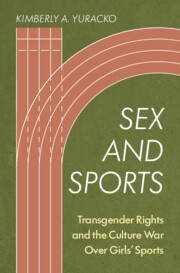Refine listing
Actions for selected content:
1299800 results in Books
The Written Word in Early Medieval England
- Kent, Mercia and Wessex, c. 830–920
- Coming soon
-
- Expected online publication date:
- May 2026
- Print publication:
- 31 May 2026
-
- Book
- Export citation
Their Bondage and Their Freedom
- Workers, Modern Slavery, and the Rescue Industry in Contemporary India
- Coming soon
-
- Expected online publication date:
- May 2026
- Print publication:
- 01 May 2027
-
- Book
- Export citation
A History of India's Green Revolution (South Asia Edition)
- A Reign of Technocracy
- Coming soon
-
- Expected online publication date:
- May 2026
- Print publication:
- 01 May 2027
-
- Book
- Export citation

The Cambridge Companion to American Literature and Empire
- Coming soon
-
- Expected online publication date:
- May 2026
- Print publication:
- 31 May 2026
-
- Book
- Export citation
Immoral Traffic (South Asia Edition)
- An Ethnography of Law, NGOs, and the Governance of Prostitution in India
- Coming soon
-
- Expected online publication date:
- May 2026
- Print publication:
- 01 May 2027
-
- Book
- Export citation

Submarines in International Law
- Coming soon
-
- Expected online publication date:
- May 2026
- Print publication:
- 31 May 2026
-
- Book
- Export citation
The Episteme of Empire
- William Wilson Hunter and Colonial Bengal
- Coming soon
-
- Expected online publication date:
- May 2026
- Print publication:
- 01 May 2027
-
- Book
- Export citation
One Nation Under Law
- The Meaning of the Declaration of Independence
- Coming soon
-
- Expected online publication date:
- May 2026
- Print publication:
- 31 May 2026
-
- Book
- Export citation

Yatdjuligin
- Aboriginal and Torres Strait Islander Nursing and Midwifery Care
- Coming soon
-
- Expected online publication date:
- May 2026
- Print publication:
- 31 May 2026
-
- Textbook
- Export citation
Narrative Affinities
- Friendship, Literature, and Democracy in Twentieth-Century India
- Coming soon
-
- Expected online publication date:
- May 2026
- Print publication:
- 01 May 2027
-
- Book
- Export citation
CNS Spectrums (South Asia Edition)
- Volume 30(1), pp. e19, 1–10, e21, 1–7, e23, 1–7, e25, 1–5, e30, 1–13, e33, 1–9, e34, 1–6
- Coming soon
-
- Expected online publication date:
- May 2026
- Print publication:
- 01 May 2027
-
- Book
- Export citation
Environment, Development and Ethnicity in Darjeeling Himalayas
- Coming soon
-
- Expected online publication date:
- May 2026
- Print publication:
- 01 May 2027
-
- Book
- Export citation

Sex and Sports
- Transgender Rights and the Culture War Over Girls' Sports
- Coming soon
-
- Expected online publication date:
- May 2026
- Print publication:
- 31 May 2026
-
- Book
- Export citation
Rethinking Beethoven and the Enlightenment
- Coming soon
-
- Expected online publication date:
- May 2026
- Print publication:
- 31 May 2026
-
- Book
- Export citation
Governance by Emulation
- The Oversight Board, the Digital Services Act, and the Struggle for Platform Accountability
- Coming soon
-
- Expected online publication date:
- May 2026
- Print publication:
- 31 May 2026
-
- Book
- Export citation
Uncle Sam's Little Soldiers
- Patriotism, Mobilization, and the Americanization of Children, 1914–1918
- Coming soon
-
- Expected online publication date:
- May 2026
- Print publication:
- 31 May 2026
-
- Book
- Export citation

Gulliver's Travels
- The Cambridge Anniversary Edition
- Coming soon
-
- Expected online publication date:
- May 2026
- Print publication:
- 14 May 2026
-
- Book
- Export citation

How to Critically Read the Scientific Research Literature
- Introducing the CERIC Method
- Coming soon
-
- Expected online publication date:
- May 2026
- Print publication:
- 31 May 2026
-
- Book
- Export citation

Constructing the Achievement State
- Cultural Administration in Postrevolutionary Egypt
- Coming soon
-
- Expected online publication date:
- May 2026
- Print publication:
- 31 May 2026
-
- Book
- Export citation
The Waning of Wisdom
- The Psychology of Reasoning in the Post-Truth Era
- Coming soon
-
- Expected online publication date:
- May 2026
- Print publication:
- 31 May 2026
-
- Book
- Export citation
